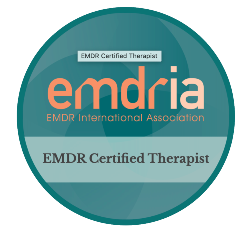5 Simple Ways to Get the Most Out of Therapy
Therapy is an investment in one’s own health and happiness. Therapy can be life changing, but the choice to start therapy can be deterred by concerns about how much it will cost, how long it will take, and whether it will work. Here, I list out 5 simple tips for those who are new or returning to therapy, in order to help make the most out of your therapy experience and not break the bank.
- Choose Wisely
The best therapy experiences provide clients with a healing or growth experience combined with skill building and practice so the client can get to a point where they no longer need it. Therefore, the most important lesson in making therapy cost effective and successful is to pick the right therapist for you. Since there are so many choices out there, you can narrow the field by considering the following points.
Experience: Graduate school for counseling offers a great deal of knowledge, but it isn’t necessarily the place where your counselor learned the most about counseling. Post-graduate experience and ongoing education/certification is how therapists become confident in their abilities and skilled in their interventions. Experience and “expertise” in a particular therapy approach will make it more likely that your therapist can treat your unique problem more efficiently and often times in fewer sessions compared to someone with less experience. Though the price may be slightly more for each session, you may end up saving money in the end if you start to see real progress towards your goals in less time.
Intuition after the 15 minute phone consultation: Most therapists offer a free phone consultation so you can see whether it will be a good fit. Here, during the 15 minute phone consultation make sure to communicate what you’d like to get out of therapy, and inquire about the approach your therapist will likely take to get you there. It may also be important to ask about scheduling availability and whether it will fit into your busy lifestyle. Finally, it is important to pay attention to how you feel after the phone consultation. In just 15 minutes, you can pick up on some basic personality characteristics to get a sense of whether you and this therapist will make a good team.
- Do Your Homework
As stated above, lasting change is created from more than just the reflective dialogue that occurs during therapy. As explained in Dan Siegel’s book Mindsight, the neural networks that make up our thinking, feeling, and problem-solving Mind can actually be changed with exercises in awareness, mindfulness, and imagery. If practiced regularly, these exercises can reshape our brains and have incredible results, including but not limited to decreasing stress, managing anxiety, increasing compassion (towards self and others), strengthening our inner resources, and improving frustration tolerance. They key to seeing results is daily practice that needs to occur in between therapy sessions. Therefore, when your therapist gives you homework it is usually for a very good reason. Practicing your therapy skills at home and keeping track of how they work is an easy way to make the most out of your therapy.
- Be Honest (even if it’s to tell the therapist what they’re doing isn’t helping)
Tip 3, Be Honest, sounds easier than it is. Hopefully at this point you’ve found a therapist that is a good fit and who you enjoy seeing on a regular basis. It’s only natural for some people to want to avoid saying something that could upset someone, such as letting your therapist know that a particular intervention was not helpful or does not seem relevant. On the contrary, good therapists encourage this type of feedback and have the wisdom to welcome feedback and make necessary changes to the treatment plan if need be. The one thing that really matters in therapy is whether the interventions are working and make sense to the client. Not all interventions work equally for each client; therefore it is important to be able to talk about what works and what doesn’t. If you’ve followed tip #1 (Choose Wisely), the therapy office will be a space where you feel safe and comfortable enough to speak up and be completely honest.
- Ask about Assessments
If you really want to get the most out of therapy, it is helpful to have a way to objectively track your progress. In the world of psychotherapy, there are numerous research-based assessments that measure the intensity and/or frequency of symptoms, or help clarify what the primary problem is. Assessments are particularly helpful at the beginning of therapy, to find a baseline of functioning, and towards the end of therapy to measure how well the interventions are working. Some assessments can also help therapists figure out which interventions will be most helpful. For example, a client who engages in harsh self-judgment may be asked to take an assessment of their use of self-compassion skills. This assessment may clarify which type of self-compassion skill may be missing from their cognitive thinking process, which would help the therapist know what skill to teach.
Once you and your therapist identify what the problem is, your therapist should initiate a conversation about how you will track progress, which may include the use of a periodic assessment tool.
- Taper Off (and know that you can always go back).
Therapy, just like medical treatment, should not last forever. Therapy may take longer in cases of complex trauma, attachment difficulties, or chronic mental illness, but in general your therapist should be working towards you being able to function successfully without them. Sometimes, when therapy has made a client feel better, there is some worry about ending treatment. One option is to work with your therapist to taper off the frequency of therapy, by moving from weekly, to bi-weekly, to even monthly sessions as you increase your skill competence and overall confidence. Talk to your therapist about the option to come back on an “as needed” basis, knowing that life has it’s ups and downs, and that at some point you may benefit from the additional support of temporarily returning to therapy.
Click here for more information on Anxiety Treatment.
Call Greenwood Counseling Center at (303) 221-1272 for your free, 15 minute initial phone consultation.





